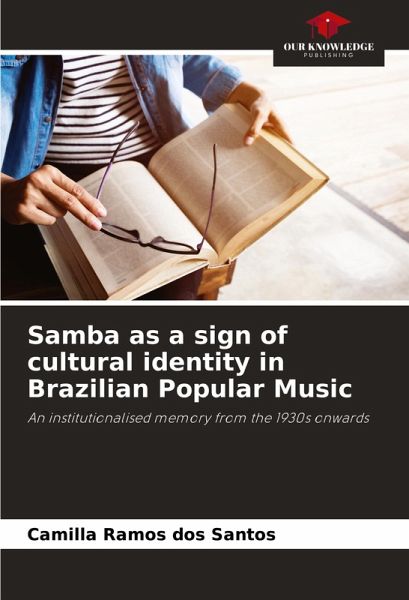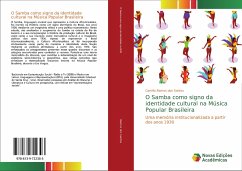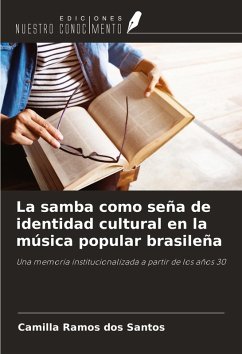
Samba as a sign of cultural identity in Brazilian Popular Music
An institutionalised memory from the 1930s onwards
Versandkostenfrei!
Versandfertig in 6-10 Tagen
51,99 €
inkl. MwSt.

PAYBACK Punkte
26 °P sammeln!
Samba, the musical language that represents Afro-Brazilian culture, was inscribed in history as a sign of Brazilian identity in the 1930s through a mythical imaginary and an economic policy. This study analyses the emergence of Samba in the city of Rio de Janeiro and its incorporation into the history of cultural production in Brazil, as well as its inscription as a cultural commodity and the political imaginary of the 1930s. Despite representing Brazil internationally, Afro-Brazilian culture was only effectively incorporated as part of the nation's memory and identity through affirmative acti...
Samba, the musical language that represents Afro-Brazilian culture, was inscribed in history as a sign of Brazilian identity in the 1930s through a mythical imaginary and an economic policy. This study analyses the emergence of Samba in the city of Rio de Janeiro and its incorporation into the history of cultural production in Brazil, as well as its inscription as a cultural commodity and the political imaginary of the 1930s. Despite representing Brazil internationally, Afro-Brazilian culture was only effectively incorporated as part of the nation's memory and identity through affirmative action policies from the 1970s onwards. The antagonisms present in this discursive framework and the solutions found to combat racism are emphasised. A materialist theory of discourse is postulated, which constitutes the systematisation of a level of socio-historical and geopolitical existence, which collates concepts that emphasise the discursive materiality inscribed in Brazilian Popular Musicduring the Vargas Era.














